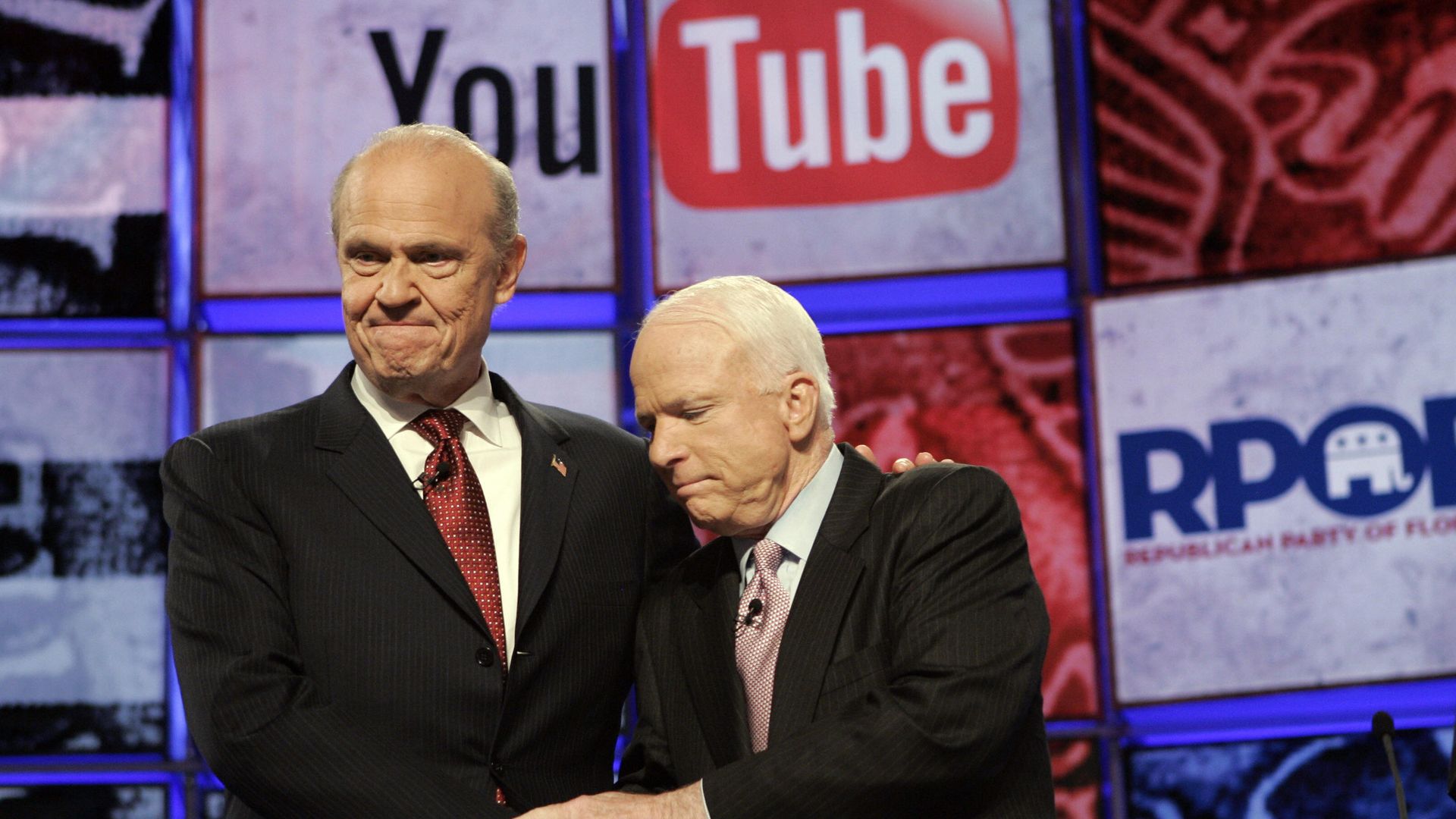Tech's on-again, off-again role in campaign debates
Add Axios as your preferred source to
see more of our stories on Google.

Sens. Fred Thompson and John McCain at a 2007 Republican debate. Photo: STAN HONDA/AFP via Getty Images
Tech companies have increasingly been participating as co-hosts or sponsors of political debates. But this cycle, two of the biggest tech giants, Facebook and Google, are so far noticeably absent from the Democratic primary debates.
Why it matters: Google and its video subsidiary YouTube, as well as Facebook, first partnered with TV networks for debates during the 2008 presidential cycle. Their presence has continued as a part of subsequent debates until this year.
- In 2007, YouTube was the first of today's major tech platforms to partner with a TV network, CNN, for a televised debate. Candidates answered questions from constituents that came from YouTube videos.
- Later that cycle, Facebook partnered with ABC News to co-sponsor a debate and created a special comments "soundboard" for users to post on in real-time while the debate aired on live TV.
- MySpace partnered with the Commission on Presidential Debates in 2008 on a series of interactive features for the debates that allowed users to review candidates online while watching the debates.
Fast forward: Now Facebook and Google, as well as some of their other tech rivals, are facing scrutiny from lawmakers and presidential candidates for the way that their platforms can be used to spread misinformation and manipulate elections.
Driving the news: The Democratic National Committee announced on Thursday the hosts of the next four presidential debates in the first four primary and caucus states.
- Both Facebook and Google were missing from the list of debate partners, but Apple News and Twitter were included. Facebook isn’t likely to participate in any primary debates this cycle.
- The February 7 debate in New Hampshire will serve as Apple News' first debate. Apple launched Apple News+, a subscription magazine and news app, in March 2019.
- Twitter will partner with CBS News and the Congressional Black Caucus Institute for a debate on February 25 in Charleston, South Carolina.
How it works: In situations where broadcasters host debates that feature partnerships or sponsorships from tech companies, the financial burden is typically placed on the broadcaster for the majority of debate expenses.
- The tech companies will sometimes strike deals with the networks to handle other costs, like the costs to set up a filing center for press or a post-debate spin room.
- For companies like Twitter, the opportunity to partner with a network isn't just a branding play, but it can also be a chance to showcase how its platform can benefit civic discourse and participation.
- For example, Twitter helped field debate questions from voters to candidates in real-time in 2015. Sources say it's likely the company will look to do similar things in 2020.
By the numbers: By Axios' count, there were 7 primary debates on both sides that were co-hosted by or partnered with tech companies during the 2016 cycle. So far this cycle, there have been 2 — but there have only been debates on one side of the political aisle.
Be smart: For voters, the tech partnerships can sometimes help bring them closer to the debate, by giving them a chance to ask questions or register reactions. As a result, whatever challenges the companies face during this election cycle, these partnerships are likely with us for the long haul.

